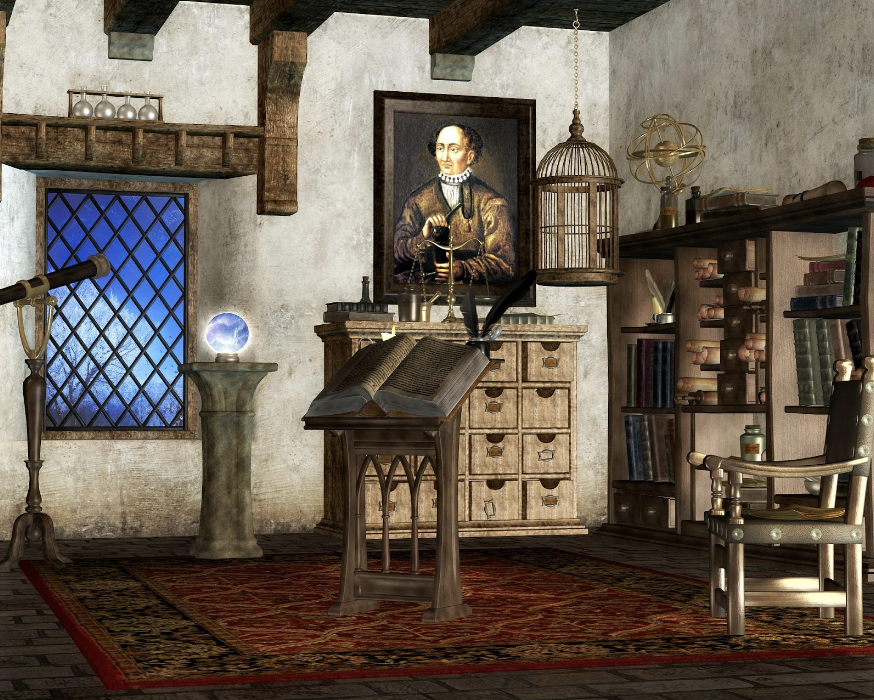The late 15th century was known for lots of trials targeted to curb sorcery and witchery. These trials continued in a broader form in the 16th century. Although witchery and sorcery practice was reduced, Johann Weyer and De Praestigiis Daemonum would forever be remembered for the role they played.
Witchcraft trials were the norm in 14th to 16th century Holland. Witches were accredited with the ability and powers to invoke calamities and destructions on the land. Incidentally, many people identified as witches or practicing sorcery were indicted and made to face cruel trials.
These trials were mostly undemocratic and required very porous proof for judgment. However, it was the will of the populace to identify and weed out these vile acts. In a moment like this, Johann Weyer, one of the leading medical practitioners in 16th Century Netherlands, was born.
The Dutch physician will go on to write a book inspired by his ire at the prevalent practices of his day. De Praestigiis Daemonium was birthed as one of his attempts to quell the witchcraft trials. Along the line, huge progress will be made, and he will succeed in making the Dutch monarchs see witchcraft and demonology through his eyes.
Johann Weyer
Johann Weyer, or Johannes Wier, was a Dutch medical practitioner who lived in the 16th century. Widely he is also known to be an occultist and demonologist who wrote many controversial books.
Johanne Weyer was born in a small community called Graves in the Netherlands. He attended Latin schools from where he subsequently chose to study exclusively under a renowned thought leader called Agrippa. As a live-in student of Agrippa, Johann acquired in-depth knowledge in the study of demons, of which his master was known.
Due to the unconducive situation of his master in the Netherlands, where his teachings were largely heretical, Johann always had to be on the move. Subsequently, his master died in 1533, plunging Johann into independence. He went on to study medicine in the French capital city of Paris and practiced as a physician almost throughout his life, becoming the chief physician of many towns and provinces.
As a physician, he argued strongly against the presence and effect of demons and mystic spirits in the earthly realm. He was also known to be a staunch advocate of the scientific way of ascertaining causes and effects. This is most evident in his vehement argument against the purported powers of witches and their ability to conjure evil and demons.
Moreover, Johann Weyer opted to offer scientific solutions to calamities, spells, and poisons. During his days, witchcraft trials and subsequent burning were rampant and a source of national entertainment. Men, women, or children who were accused of witchcraft were judged by the Dutch authorities and burned openly. Johann will go on to be instrumental in the abolishment and total re-education of his countrymen concerning the ordeals of witchcraft, devils, and demon worship.
Johann Weyer De Praestigiis Daemonum
Ironically, Johann Weyer’s argument is not in the non-existence of the paranormal or their lack of power to affect normal human life. Instead, as a former student of a renowned researcher of demons, he intends to practice it.
Instead, Johann Weyer thinks that only magicians can wield and conjure the devil’s power. It is believed that Johannes Weyer is a student of a particular school and doctrine of demonology judging by his frequent and significant use of the word ‘heresy’ and ‘ heretical’ and the implications of improper use when describing witchcraft.
De Praestigiis Daemonum says that the devil has power, though of a different nature and a limited quantity. A certain sect of persons follows the devil’s rule but are not witches.
Shipwreck of souls johann weyer
Johann Weyer believes that though the devil and its cohorts exist and do possess power, it is not the witches that wield it. He believes that witches lack the wherewithal to prosecute the devil’s powers and, as such, are practically unable to perform the atrocities they are persecuted.
Thus, he insists that for witches to confess to the acts they say they do, it must be nothing other than an illusion and ‘melancholy.’ Medically, he attempted to provide some viable evidence as to the porosity of the witches’ claims. He sought to link their confessions to cases of personality disorders, mental instability, and illnesses.
Notably, he called the heinous acts a shipwreck of souls. Demanding that the victims of the witch-hunts and trials need treatment and observation instead of a ‘shipwreck.’
Consequently, these opinions of the physician Johann Weyer were instrumental in stopping the ubiquitous practice of executing witches and bringing some focus to medical science in the 16th-century Netherlands.
Johann Weyer’s Work
In 1563, the book De Praestigiis Daemonum et Incantationibus ac Venificiis was published by Johann Weyer. In Johann Weyer’s book, he vehemently refuted all the arguments of his contemporaries who advocated for witch-hunting.
Many Christian and civil writers have given their arguments portraying the evil effects of witchcraft. A flurry of influential writers dissected the mystical phenomenon of witchcraft and opined that total annihilation is the best way to rid society of them. At this point, Johann Weyer rose to prominence, prompting him to publish a book from a physician’s perspective. He argued that witchcraft was all about illusions. While not proffering or tending to any actual scientific evidence, he opined that the illusions resulted from the interference of demons.
Book
This book subsequently catalyzed the Dutch aristocrats to reconsider the habit of with-hunting and, by the late 16th century, had adopted Johanne Weyer’s work as advisory material on the issue of witches.
Many other works were written and attributed to Johannes Weyer. Most of them were pseudo-scientific and touched on the metaphysical. Throughout his active days through his retirement in 1578, Johannes has an oeuvre of mysterious works. He ventured into the field of unknown diseases. During his days, he also extensively researched the form and causes of diseases ascribed to mythical sources. While not always scientifically correct, he made significant inroads into the questioning and testing ailments that otherwise were traditionally believed to be without reasonable cause.
Having completed his only work unrelated to witchcraft, Johannes Weyer died in 1588, aged 73. Books mixed with occult doctrines designed to dispel popular myths were blazing on his trail. Today, his books are still known for their eccentricities.
‘De Praestigiis Daemonum
De Praestigiis Daemonum, Latin for ‘On the Tricks of Demons,’ was one of the principal works of the physician, demonologist, and occultist Johann Weyer. It was published in 1563 during the Dutch witch-hunt and trials.
True to its thematic focus, the book was not shy of tunneling insight into the practices of witches and demon worship. It is believed that Johann intended to discredit the general notions of witches and the supernatural. However, critics wonder if this was reasonably achieved, seeing that even more propositions and outlays were made of demons and how they operate. At the same time, a lot of students engaged in studying witchcraft in early modern Europe use the work of Johann Weyer when working on academic projects. Before they even decide on addressing some of the best essay writers for hire online, they browse conceptions of the witch and witchcraft prepared by the writer of De Praestigiis Daemonum.
Regardless, the thinking of aristocrats and Dutch authorities was tuned to leniency due to the obvious strong arguments against the sanity of witches.





